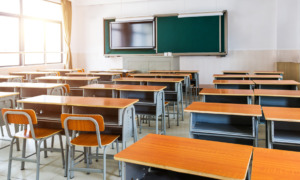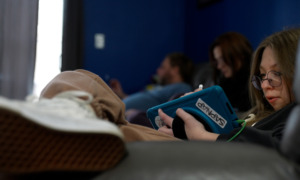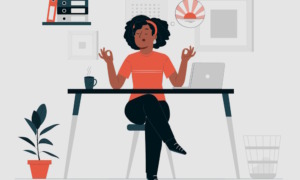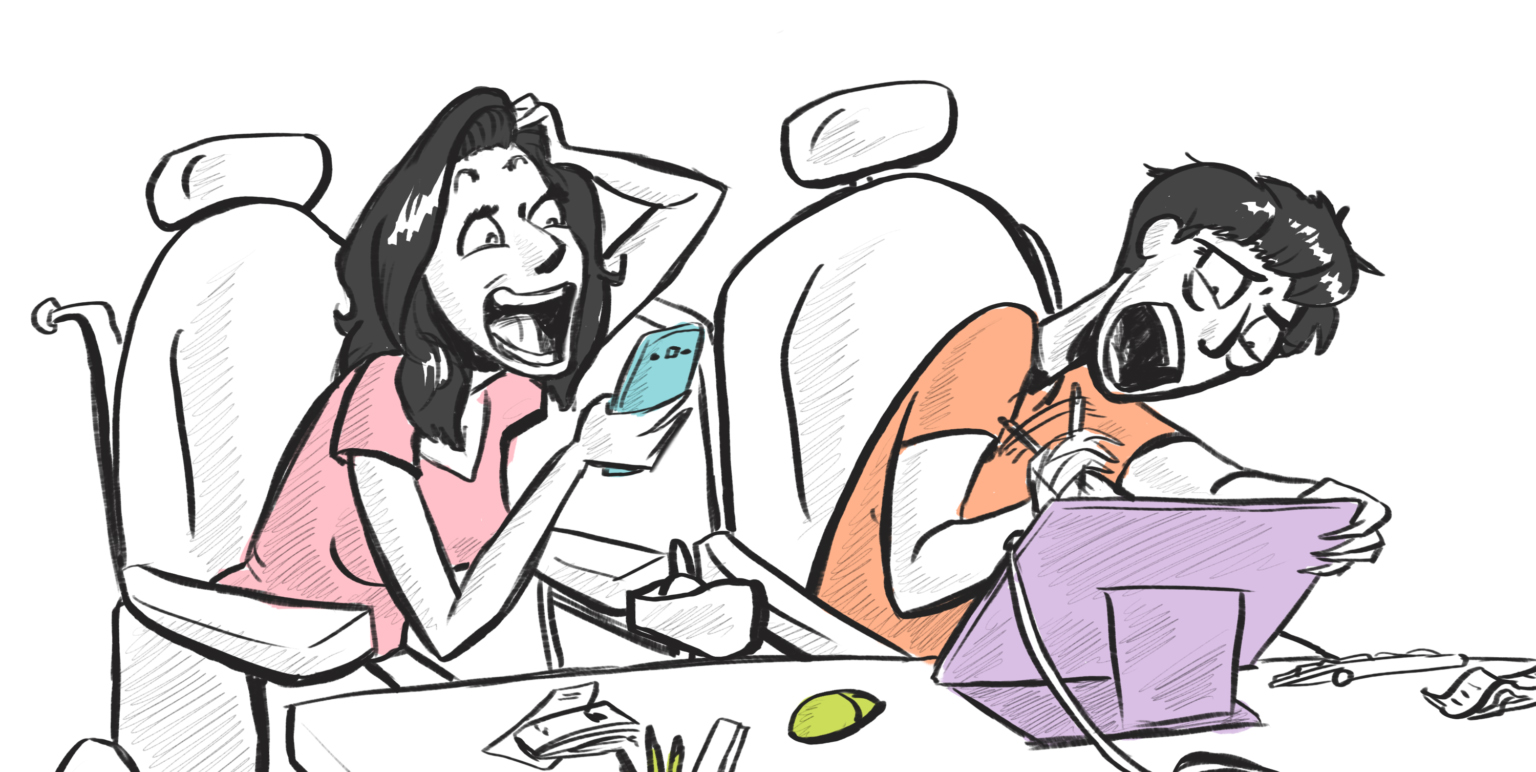
Credit: Jessica Oddi and Lianna Oddi
.
Last week, while I was interviewing a source for my column, I was alerted to an online campaign by an Instagram page called The Disabled Life. Its founders, sisters Jessica and Lianna Oddi, started the campaign to put faces on a community that is more vulnerable to COVID-19. The campaign, #ThanksForDistancing, called for people in the disability community to share their experiences with social distancing by writing a post and/or uploading a photo or video using the hashtag #ThanksForDistancing.
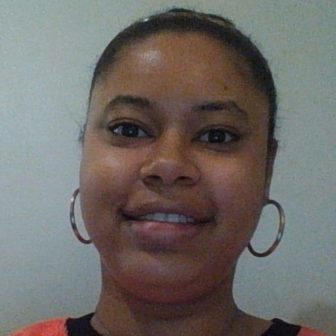
Deandra Mouzon
If you search the hashtag #ThanksForDistancing on Instagram, you’ll find many photos of people making silly poses, sitting outside, dressed up, many with masks on. The Oddis, who live in Ontario, wanted to say thank you to everyone for staying home and potentially saving the lives of people who are particularly at risk of contracting COVID-19. This is their way of doing that.
Jessica and Lianna, who both live with congenital myopathy (as well as awaiting further diagnosis), run The Disabled Life website, where they talk about the “jerks and perks” of living while disabled. “It’s our online rantings about being disabled, and a way for us to share our funny-at-home-banter on the internet,” they said, answering questions together by email. The Disabled Life started as a blog where the sisters would draw comics and write posts about their lives, but they recently moved it to Instagram because they feel it is more accessible.
Jessica, 28, and Lianna, 30, began #ThanksForDistancing to shed light on an issue they were finding in the disabled community.
“We were seeing a disconnect between the blanket statement of ‘vulnerable population’ and the real people that COVID affects. That’s why we started the campaign, to connect the dots, but on a human level. We also understand that it’s difficult to empathize with what’s going on when you don’t personally know someone affected by this, which is why we decided to bring these stories to the masses.”
They said they hope able-bodied people will see these posts and feel motivated.
“We’re hoping that when people feel discouraged or frustrated by distancing, they can look at these stories and remember why we’re sacrificing so much. As disabled people, we’re used to these kinds of precautions. But that doesn’t mean we don’t understand how hard it is. So we’re hoping this campaign spreads a little bit of empathy, understanding, and support for everyone.”
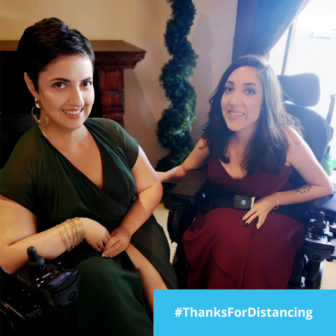
Lianna Oddi (left) and Jessica Oddi
The Oddis think social distancing, although necessary, has both positive and negative aspects. They see both sides of the coin and want to share their message. Their 1,261 followers are also on board to advocate for this cause.
“To be blunt, disabled people’s lives are being saved. We can’t speak for the entire community, but when you’re immunocompromised you tend to follow these distancing protocols. The only difference is that the rest of the world is doing the same! Which is huge, because it’s lowering the odds of us contracting a disease we can’t survive. But, of course, there are negative effects to the community as well; some people can’t have their usual care, medical needs aren’t being met, and in some places medical equipment like ventilators are being taken away. There are sacrifices all around.”
In my work, I have found that many people in the disabled community are finding outlets to voice their opinion about the current situation. Campaigns like #ThanksForDistancing are vehicles for a diverse group of people to get together and support a cause that affects us all. As we continue to follow stay-at-home orders, remember that you can find support all around and that despite our differences we are truly in this together.
If you would like to contribute to this column and share your story about life during quarantine with a disabled youth, email me at Deandra@csjournalism.org.
Deandra Mouzon is a Georgia-based journalist who received a B.A. in journalism from CUNY’s York College. Currently she is working on a publication about youth with disabilities.


